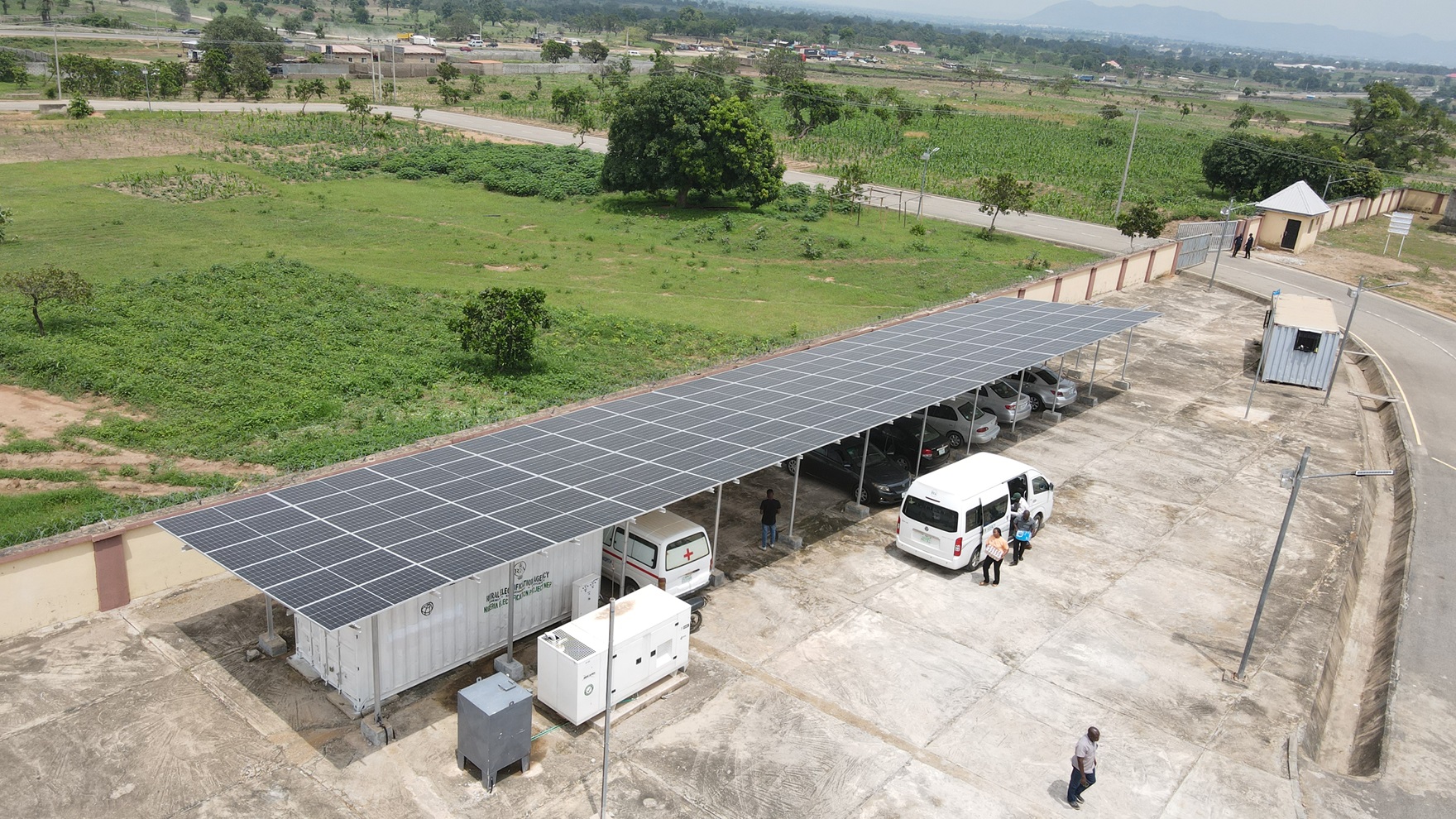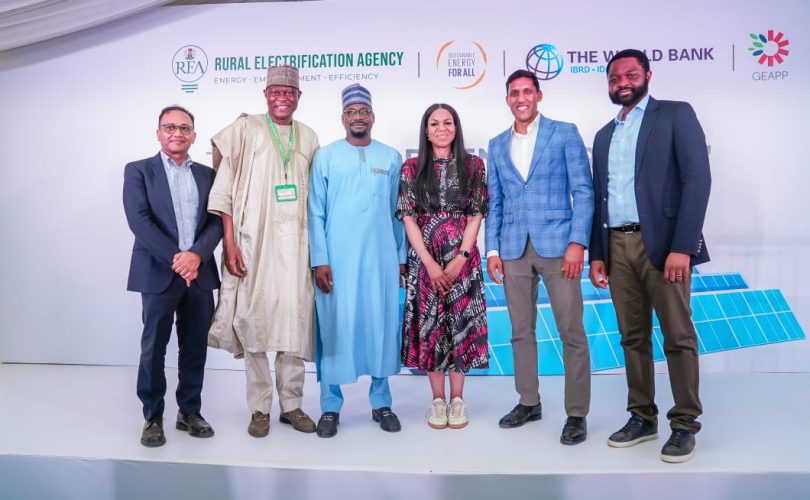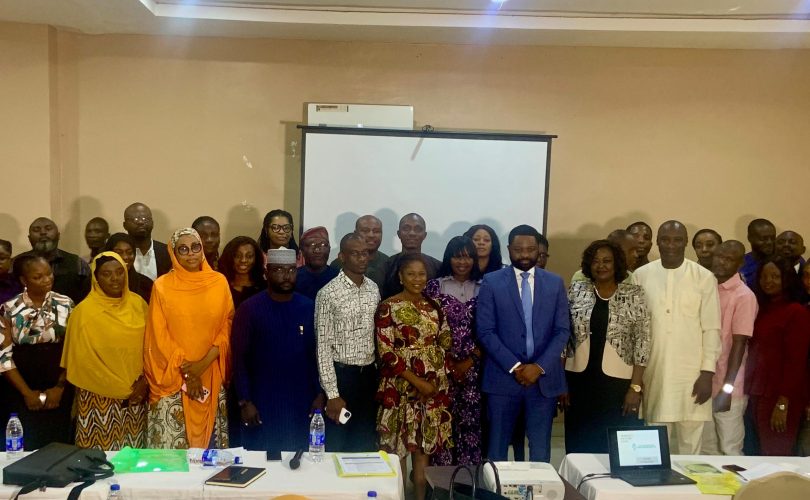
ENERGIZING HEALTHCARE CENTERS: REA-NEP IS ADDRESSING NIGERIA’S PUBLIC HEALTH ISSUES THROUGH THE PROVISION OF SOLAR HYBRID SYSTEMS
The Nigeria Rural Electrification Agency (REA) has energized no fewer than 100 healthcare centers nationwide with state-of-the-art 50-kilowatt containerized solar hybrid systems across Nigeria’s six geopolitical zones, including the Federal Capital Territory (FCT), Abuja.
In a remarkable stride towards improving healthcare infrastructure, the REA embarked on the official tripartite handover of 50kW containerized solar hybrid systems to three health facilities messers; Asokoro General Hospital, Karu General Hospital, and Zuba General Hospital.
This initiative aims to alleviate the costly reliance on diesel, thereby strengthening the operational capacity of medical healthcare centres.
These positive developments, were announced in Abuja by the Head, Project Management Unit of the Nigeria Electrification Project (NEP), Olufemi Akinyelure, who represented the Managing Director of the REA, Mr. Abba Abubakar Aliyu.
Mr. Olufemi Akinyelure, expressed these views in his opening remarks, at a well attended ceremony to mark the official handing over ceremony of the systems to the respective beneficiaries.
He stated that the REA’s driving force behind this transformative project, has demonstrated its unwavering commitment to closing the energy gap in off-grid communities and improving energy access in critical sectors like healthcare.
Olufemi Akinyelure futher highlighted the agency’s efforts, stating, “Access to electricity in the healthcare system can be the difference between life and death.
We have deployed 100 containerized solar hybrid systems, each with a capacity of 50 kilowatts, across the country, and plan to hand over similar systems to 83 more healthcare centers in the near future.”
To further corroborate the views espoused by Mr. Akinyelure, a hospital staff member at General Hospital Asokoro, who preferred to remain anonymous, expressed the following sentiments: “The cost of running the hospital has drastically been reduced compared to our previous experiences. The new power supply system has tremendously improved the quality of services in the hospital. The solar power provided by the REA-NEP, as part of the World Bank-assisted project, aims to address Nigeria’s public health issues, benefiting both the environment and the citizens.”
The project’s technical components, including PV panels, inverters, battery storage, and backup diesel generators, have been meticulously designed to ensure long-term sustainability and optimal performance. Engineer Stanley Onwunumah emphasized the importance of proper operation and maintenance, with the technical team trained to manage the systems, particularly the battery storage, to prolong their lifespan and reduce environmental impact.
The alignment of this solar power initiative with the priorities of the current administration has been a key factor in its success. Dr. Olubenga Bello, Director General of the Hospital Management Board, FCT Administration, highlighted the project’s contribution to unlocking energy resources, economic growth, and job creation. He further has expressed commitment to working with the REA and the World Bank to expand the solar power initiative to the 261 primary healthcare facilities within the FCT.
In an equal vein, Dr. Chidi Nnabuchi, the Chief Medical Director of Garki General Hospital, stated that the shift from diesel to solar in the hospital has led to significant cost savings, which are being reinvested in system maintenance in the hospital, Labour ward, Post natal ward, Theatre, Laboratory and Security Light.
Dr. Ali Muhammad Rigim, the Chief Medical Director of Zuba General Hospital, expressed his satisfaction with the completion of the solar project. “We are really happy with the final handover of the solar project in Zuba. It has been a very important project for us because now the hospital is powered 24/7,” he stated. “The solar power system has almost 100% covered all the lighting points, our bridges, televisions, and some ACs in the laboratory, pharmacy, labor room, and the theater. This project has significantly reduced our reliance on diesel, allowing us to run on solar power around the clock.”
Dr. Rigim emphasized the project’s impact on the hospital’s operations and extended his gratitude to the government. “We really appreciate the government for the support, and we are expecting more, especially being in a rural area. We hope to receive more services like this,” he concluded.
The official handing over ceremony was attended by Dr. Babagana Adam, the Permanent Secretary of HSES, Federal Capital Territory Administration. Also present were Dr. Olugbenga Bello, the Acting Director-General of the Federal Capital Territory Hospitals Management Board; Dr. Mrs. Uju Osamuede-Ojo, the Chief Medical Director of Karu General Hospital; Dr. Aliyu Mohammed Ringim, the Chief Medical Director of Zuba General Hospital; and Dr. Chidi Nnabuchi the Chief Medical Director of General Hospital Asokoro.
As the REA-NEP project continues to transform the healthcare landscape in Nigeria, it serves as a shining example of how innovative energy solutions can revolutionize critical sectors and improve the lives of millions. This initiative is a testament to the power of collaboration, strategic planning, and a relentless pursuit of sustainable development.




